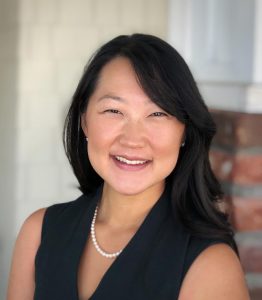As a result of COVID-19, the importance of mental heath has come to the forefront as an important aspect of maintaining resilience within our communities. Mandated shut-ins and social distancing have brought on feelings of anxiety, sadness, grief, and anger in many of us. Moreover, as we reopen our communities, there are many new challenges that have come to light for us all. As a licensed psychologist, I am often asked for guidance on how to cope during this unprecedented time. As such, I have put together these few gentle reminders of things to be mindful of as we all do our best to move forward during this pandemic.
1) It is okay to have mixed emotions.
As we reopen, some may feel relief, comfort, and excitement. Others might feel more anxious, sad, angry, or frustrated. Still many of us may oscillate between these emotions or feel all of them at once. These emotional responses are natural and even adaptive. There is no one “right” way to think, feel, or behave in the face of this global pandemic. Not only is it okay to have these emotions, if we allow ourselves to feel these emotions without judgment, they can tell us what is most important for us to move forward. For example, sadness can cue us to ask “What/who am I missing? What/who do I really love? How can I feel more connected to those people or things?” Anger can make us question, “Has a boundary been crossed? If so, where is it? How important is it? And how can I protect it effectively?” Anxiety can help us evaluate, “Am I in danger? What is the threat? What can I do to feel safer?” By allowing ourselves the time to feel and understand our emotions, we can begin to ask ourselves important questions to help us cope with these challenging times.
2) Reopening policies or guidelines are not necessarily permanent
When I work with clients, it can be helpful at the beginning to think of the process as a bit of an “experiment.” As our community does its best to navigate the reopening process, if we think of different protocols as experiments to see what fits or works best for now, we can help alleviate some of the pressure of feeling as though we have to get things right, right away. Without the pressure of thinking of changes as “permanent,” we can give ourselves time and space to be more patient with ourselves and one another and to be creative about solutions to our new problems.
3) Effective coping is hard–and you don’t have to do it alone
Ultimately, effective coping may require us to be flexible in the way we approach our every day lives. Flexibility does not mean changing our values or goals, but it may mean that we find new ways of doing things. It is easy to say, but extremely hard to do. That is why it is important that we check-in on each other a bit more, and if necessary, ask for professional help.
Psychotherapy and counseling can be an effective way to manage difficult emotions and foster our abilities to cope and adapt, especially when faced with new challenges. Online therapy has been found to be just as effective as in-person; and it is a safe and convenient way to access care, especially during this global pandemic. That is why I encourage anyone who is interested in therapy or counseling services to reach out to learn more about options for remote therapy services, as we all work together to move forward during these trying times.
About Dr. Tanaka & Coronado Psych

Dr. Rika Tanaka (PSY30925) is a licensed psychologist and founder of Coronado Psych. At Coronado Psych, our mission is to offer high-quality, evidence-based psychological services and supportive counseling to our community. We currently have availability for new clients and are offering all sessions online or over-the-phone. We also have reduced fees available for healthcare and essential workers.
If you or someone you love is interested in therapy or supportive counseling, please feel free to contact Coronado Psych at (619) 554-0120 or [email protected]. You can also schedule a free initial consultation at: https://coronado-psych.clientsecure.me.
Learn more by visiting our website (www.coronadopsych.com) or watching this brief video:





